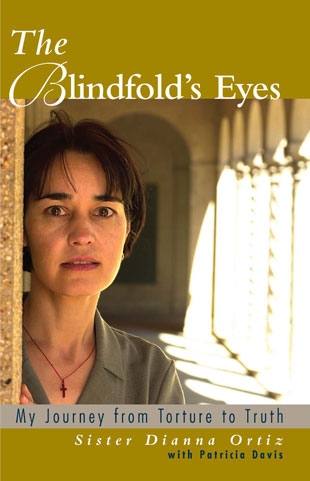Dianna Ortiz's parents, who were Mexican immigrants, tell her that at age six she stated that she wanted to be a nun. She entered the Ursuline Order and taught in Kentucky before being sent to Guatemala as a missionary among indigenous people. Then on November 2, 1989, Sister Ortiz was abducted by military security forces and taken to a compound where she was gang raped, hung by a rope over rotting corpses being eaten by rats, and burned with cigarettes. Her torturers also forced her to hold a knife while they plunged it into the body of a female victim. After 24 hours of torment, a mysterious American called Alejandro rescued her. In the car on the way to the American Embassy he told her that they had taken the wrong person and that as a Christian she should forgive them for what they had done. Sister Ortiz escaped from the vehicle and found sanctuary in the Vatican Headquarters. Her spiritual journey as a quest for the truth and her mission to speak out on behalf of others tortured all around the world had begun.
In this memoir written with Patricia Davis, a human rights activist who has worked as a communications director at the Guatemala Human Rights Commission, Ortiz quotes Dom Helder Camera: "Do not fear the truth, hard as it may appear, grievously as it may hurt. It is still right and you were born for it." Back in the United States, Sister Ortiz remained badly traumatized. She could not remember much about her past and was overwhelmed by feelings of shame, filth, fear, humiliation, and anger. Sleep-deprived and troubled by nightmares, she flinched in the presence of men in uniforms or anyone with a cigarette. Sister Ortiz decided to abort the fetus that resulted from the gang rapes, and this only intensified her feelings of "contamination" in the presence of other nuns.
One of the saddest dimensions of her difficult and arduous healing journey is the way in which she was often humiliated and betrayed by those closest to her who were supposed to serve her best interests: health care officials, lawyers, members of her religious community, and friends. Sister Ortiz had to steel herself against other formidable enemies as well, including Guatemalan officials who called her abduction a "self-kidnapping" and a "hoax." Even worse, she was vilified and slandered by American officials as she spoke her mind against torture in a series of interviews, speeches, vigils, lawsuits, and investigations by six agencies. The search for those who kidnapped her continues to this day as does the stonewalling by governmental representatives. As a start, she has called for a declassification of U.S. government documents containing information on human rights abuses in Guatemala.
The Blindfold's Eyes is a remarkable memoir of an extraordinary woman of faith whose yearning for justice and truth is a shining light for us all. Sister Ortiz is now Director of the Torture Abolition and Survivors Support Coalition International (TASSC) in Washington, D.C. One way to salute her zeal is to observe June 26 as the International Day in Support of Victims of Torture. Another is to visit the TASSC website to learn of their recommendations for action.
